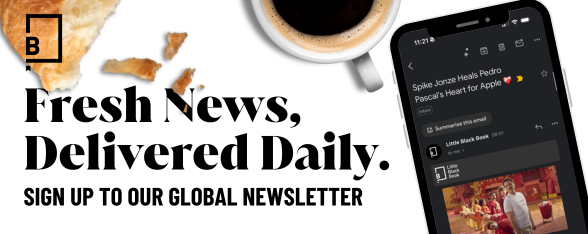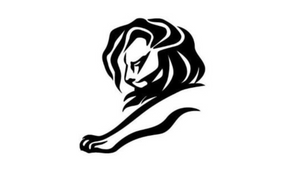
Why Paper-Based Packaging Is More Revolutionary than You Think

“The Smurfit Kappa brand journey is the most extraordinary example of a highly effective, long lasting brand strategy that was bought into by executive management from the outset, and that takes some doing. In effect, the agency and marketing team worked together to create a business where the entire workforce now believes in the brand.” says Charley Stoney, CEO, IAPI. “If you’re looking for an example of a brand strategy resulting in transformational growth, this is exemplary, and yet another example of Irish marketing and creative prowess on a global scale.”
A paper-based packaging business probably isn’t at the top of many creative agencies’ wish lists of dream clients. But if ‘The Office’ managed to make a mockumentary about a paper company interesting enough to spin out an award-winning nine seasons, an ad agency can make a real-life paper company interesting enough to transform how it sells packaging. That’s certainly what Dublin agency In the Company of Huskies has done for 80-year-old paper-based packaging brand Smurfit Kappa.
Over eight decades Smurfit Kappa has grown from one manufacturing plant in Dublin to a global leader in paper-based packaging across 36 countries and a FTSE 100 business.
“Paper packaging was historically driven by efficiency and price,” says Ruth Cosgrove, group marketing and communications director at Smurfit Kappa. Communications in the category were largely focused on trade and event marketing and maintaining strong customer relationships.
But in 2013, under the ‘Open the Future’ initiative, Smurfit Kappa’s senior management team made the decision to shift direction to move from a business that was perceived as commodity-based to one that focused on being a ‘value-added solutions provider’.
The initiative was inspired by the premise – ‘Paper is the future of packaging – Open the future.’ Ruth says this meant opening up opportunities of how paper-based packaging could deliver for its customers and communicating on this. “Through ‘Open the Future’, Smurfit Kappa set about fundamentally changing its approach,” she says. This manifested itself in three key ways.
Firstly, through marketing and communications, Smurfit Kappa wanted to help people understand packaging as a driver and contributor of growth.
Secondly, through innovative Experience Centres, Smurfit Kappa could demonstrate the integral role packaging can play across supply chain touchpoints - logistics and packing lines, on a shelf and with the end consumer.
And thirdly, Ruth says they needed to train the sales team in ‘solutions selling’, “to be more customer centric”.
“As a consequence, where once the humble ‘cardboard box’ was about saving costs, not the planet, and packaging conversations only happened in the stockroom, the decision was made to elevate this conversation to the boardroom and extend the conversations to the c-suite,” says Ruth. “We set about positioning packaging as a growth driver, a sustainable solution and a strategic imperative for business.”
Through various creative executions, Smurfit Kappa began to celebrate its material, and showcase the potential for design and creativity using cardboard. “From The Financial Times, to airport advertising close to our experience centres, we began a series of messages to c-suite and businesses about the value-added role of packaging for their business.”
That’s where In the Company of Huskies brought their expertise to bear. The agency’s first project with the client was to communicate the benefits of a new service that Smurfit Kappa had developed called Shelf Smart. Shelf Smart was about the power of packaging to drive sales. “A very new concept,” notes Damian. “The message was that a smarter approach to display packaging could have a direct impact on sales. The results were remarkable. Double-digit sales growth was not unusual. And in the FMCG category, Shelf Smart often achieved sales growth far greater than other forms of marketing may have achieved for those companies.”
Before, communication had been traditional and focused on trade and industry publications. Smurfit Kappa would rarely advertise their financial results performance, but instead simply communicated directly with investors through the investor relations team.
“A turning point was the decision to shift to a communications approach which reflected the ambition of the company,” says In the Company of Huskies creative director Damian Hanley.
The focus of one ad that took this approach was to talk about financial results. Via a life-sized bull made out of cardboard, of course. The headline was ‘Future success depends on what you’re made of.’ The bull was then placed in reception and the ad appeared in The Financial Times. “[It] represented a huge change in tone which began to express the vision of the company,” says Damian. “But that was only the start of the journey.”

Damian notes that B2B businesses often feel they have to behave in a certain manner or tone. Whereas companies in the consumer brand space are much more comfortable communicating what they have achieved. “In SK's case, it was the opposite. How good they were as a company was clear to us as an agency and marketing team, but historically the company was hiding their light under a bushel,” he says.
That brilliance goes back a long way. And looking at the company’s history it was clear there was a lot of good that could be celebrated. “Smurfit Kappa had a sustainable approach long before it became widespread,” says Ruth. “SK has a great record in sustainability. SK continuously creates inspiring levels of innovation for customers but also in ensuring that they are leading as a company with their own targets. Sustainability is in their DNA.” The company collects and recycles over seven million tonnes of post-consumer waste per year – an amount that would fill about 7,500 Olympic swimming pools. These then become raw material for new boxes. Smurfit Kappa was the first in the industry to commit to at least net zero by 2050 and many of its paper mills work with local communities to create renewable sources of heat for homes and businesses.
“From an agency point of view it was increasingly exciting to us that this company was achieving incredible things,” says Damian, “like creating new paper packaging innovation to help companies replace thousands of tonnes of plastic and helping make the supply chains way more efficient, and also showing incredible vision around their own sustainable practices. Even down to using natural predators instead of insecticides in their sustainably managed forest. We couldn't wait to start talking about it.”
One of the big inspirations for the agency’s creative team came when someone read an article which used the expression ‘plastic is a design flaw’. “It had a huge impact on us,” says Damian. “In most cases plastic was used for a very short space of time, yet lasted a very long time.”
In response, the agency came up with a campaign with the line ‘Let’s make waste extinct’. It showed two whales – one made from waste, the other a real whale. Both competing for survival. “The choice was clear: If we don't make waste extinct, everything else will be,” says Damian. “This was a significant milestone in the tone and creative standard of the communication for the company. This was a long-term vision for the planet that SK wanted a significant part to play in.”

Another creative milestone was to target the fashion industry which was looking for ways to improve sustainability, which Ruth notes was “thankfully becoming fashionable in its own right.”
Along with sustainability, e-commerce has been a big driver of growth but this was also creating lots more packaging that was ending up in consumers' homes (where recycling was probably not as sophisticated or thorough). “We wanted to promote paper-based packaging which was easily recyclable and importantly, was what consumers wanted,” says Ruth. A key creative leap here was emulating the fashion industry in the creative – “showing we understood the fashion sector and could deliver for the customer and the consumer both commercially and in a sustainable way.”
To bring the campaign to life, this campaign positioned the brand in the heart of the fashion world by transforming it from a packaging company into a high fashion brand. “The idea was to take something as simple as a cardboard box and present it in the same highly desirable way you would see a designer handbag,” says Damian. The line was ‘Fashion’s must-have label’. “This campaign showed how far our comms had evolved,” says Damian, “from targeting production managers in packaging publications to outdoor on London’s most popular high streets.”

This brings us to Smurfit Kappa’s 2021 campaign, ‘The answer has been in our hands the whole time’. The sustainability narrative had changed and broadened over the years, expanding beyond ocean waste into climate change, greenhouse gases and carbon emissions, as well as biodiversity, food miles etc. to name but a few. “Fridays for Future was big, and young people were making themselves heard about how it is their future that was at stake based on the actions of society today,” notes Damian.
“When people protest for change, they reach for cardboard to make their signs. They write their messages for a more sustainable future on the very material that helps to create it. A material that is renewable, recyclable and biodegradable.” That was the insight that inspired the campaign, highlighting cardboard’s role as a hero of sustainability.

Since then, Smurfit Kappa and Huskies have begun a series of short films called ‘Box Stories’. These are stories about how the packaging brand is partnering with forward-thinking customers and businesses to create a more sustainable future together.
For Ruth, there are three strategic lessons she thinks other companies could learn from this journey:
“B2H [business to human] approach – we understand that consumers drive our customers' agenda. So although we are a business to business brand we believe in a business to human model, a multi stakeholder approach - we don't restrict ourselves to only operate in a business environment.
“Be for something – Our highly awarded ‘Better Planet Packaging’ initiative promotes the company's long term goal to work towards a sustainable future for all its customers and the planet. Rather than being against plastic - our purpose is to create, protect and care – and therefore we believe in creating packaging to serve our customers’ needs that protects (both the product and our customer reputations) while caring for the planet and future generations.
“Keep evolving to deliver sustained and enhanced differentiation – the world keeps changing and we have to listen to our customers and change to continually meet their needs.”
Damian’s got a lot of admiration for his client’s willingness to push creativity into new space in a category that might not seem the most exciting to some. “There are no such things as conservative companies, only conservative ideas,” he says, reflecting on the journey SK has been through in its communications. “Companies in the B2B space probably suffer a little more from the view that they need to behave conservatively about their achievements and vision. Many consumer-based companies don’t burden themselves with this! They are happy to talk about how they are going to change your life, and in many cases this is unjustified. Companies like SK are the opposite. They under promise and over deliver. Many B2B companies are genuinely doing amazing things that help transform business and progress society. B2B marketing should be more comfortable talking about their achievements in a less conservative way.”













